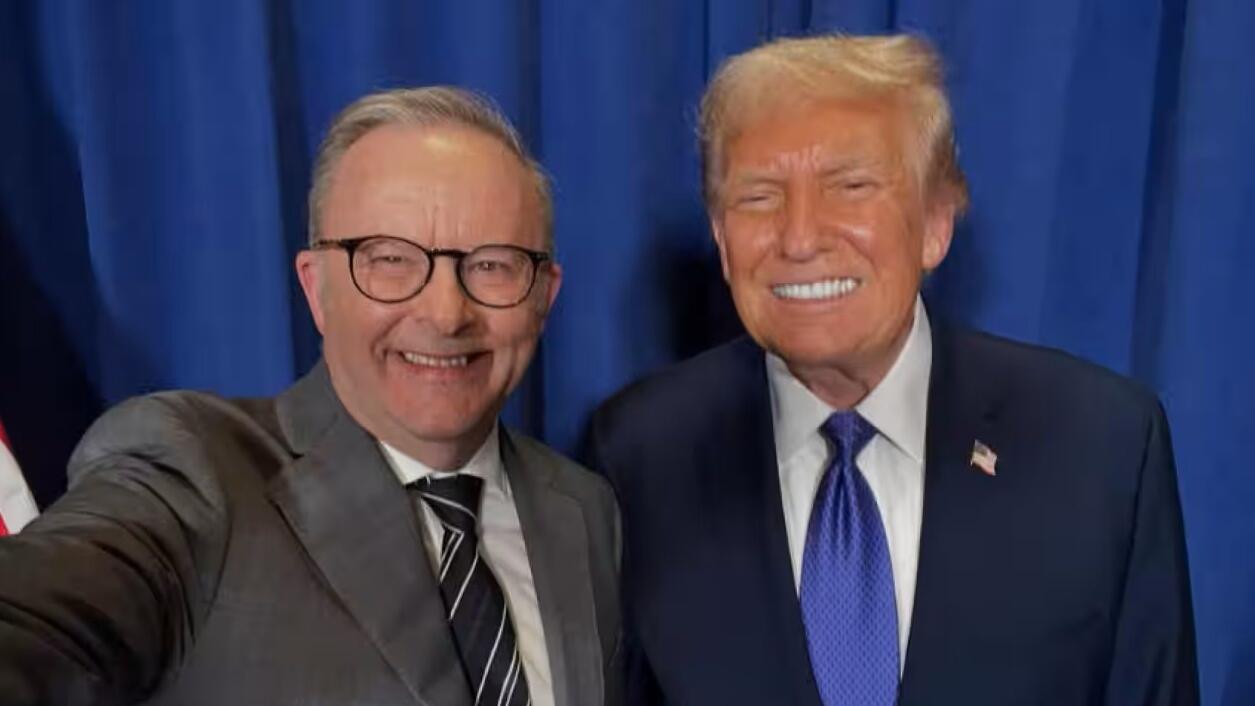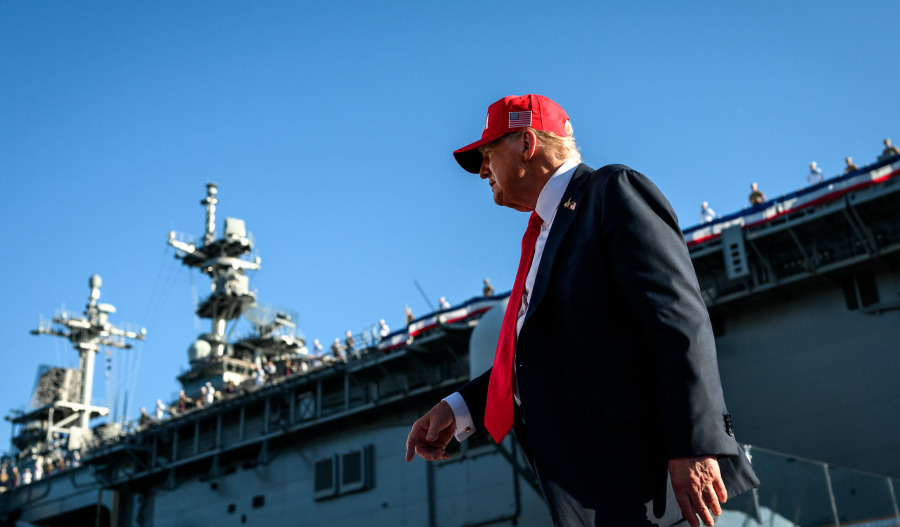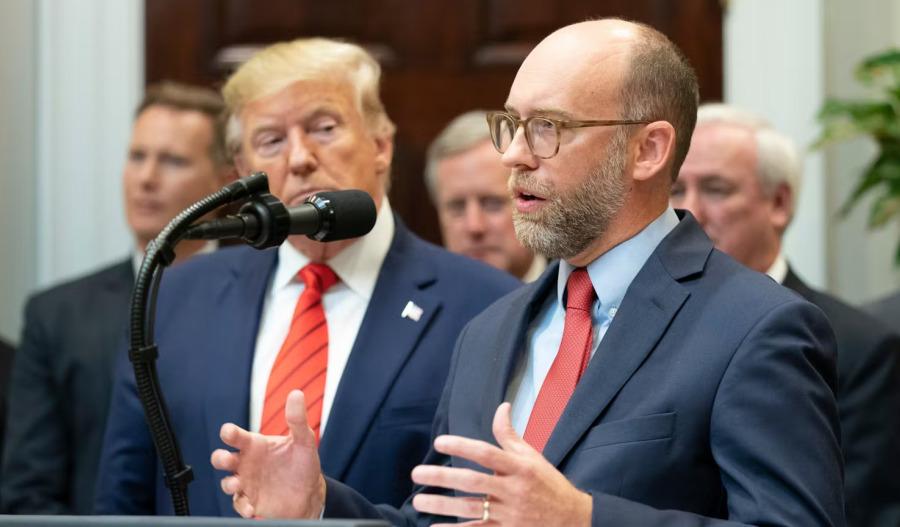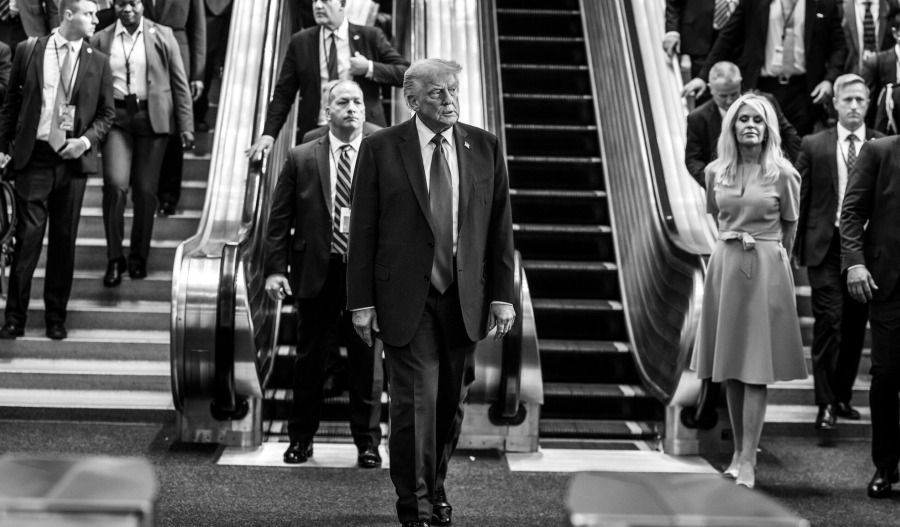After nine months of diplomatic limbo, Australian Prime Minister Anthony Albanese finally secured his White House moment with President Donald Trump on 20 October in a lunchroom full of reporters.
The two leaders signed a critical minerals pact that Albanese described as a US$8.5 billion (A$13.1 billion) pipeline “ready to go” with the United States, however, full details of the agreement remain to be seen.
Terms between the countries are aimed to provide a strategic hedge against Chinese dominance in strategic metals supply chains at a moment when Washington desperately needs alternatives.
President Trump declared that "in about a year from now, we'll have so much critical mineral and rare earths that you won't know what to do with them".
Albanese and Trump also brushed upon the $240 billion AUKUS submarine deal when prompted, and while nothing groundbreaking was revealed - sentiments were that it was progressing faster than before.
The meeting “between friends” wasn't without its fireworks either.
When a reporter asked about Australian Ambassador Kevin Rudd's past criticisms of Trump, the U.S. President didn't hold back.
"I don't know anything in the... Where is he is he still working? He said bad? I don't like you either. And probably never will, go ahead."
Rudd, sitting across the table, stayed silent as Albanese, diplomatically, channelled a calmness Ukrainian leader Volodymyr Zelenskyy did not during his own meeting with the U.S. President.
Countering China
The minerals deal, by contrast, got the full Trump red-carpet treatment.
Beijing's 9 October export restrictions have expanded from seven to 12 of the 17 rare earth elements and now require licences for any product containing more than 0.1% of Chinese-sourced materials.
The clampdown has already shuttered production lines across European automotive suppliers, with only 25% of export licence applications approved since April.
Trump threatened 100% tariffs on Chinese goods in October - which would push effective tariff rates above 130% - before acknowledging Beijing's leverage.
"They threatened us with rare earth and I threatened them with tariffs but I also threatened them with many other things like aeroplanes," Trump said, noting China has over 400 grounded planes that need American parts.
The deal is also expected to secure Australia's own strategic metals supply chain - especially in terms of processing, of which it currently relies heavily on the Middle Kingdom for.
Albanese emphasised the deal's three-tiered structure: joint Australia-U.S. activities, U.S. investment undertakings in Australia, and Australian undertakings, with one trilateral venture involving Japan.
"What we are trying to do is take the opportunity with each other," Albanese said.
"It's not just about digging things up and exporting them but making sure that we have [access] across the supply chain with our friends being able to benefit."
September groundwork
Last month, an Australian delegation of critical minerals companies visited Washington and New York to meet senior Trump administration officials and investors.
ASX-listed firms, including Australian Strategic Materials (ASX: ASM), Ionic Rare Earths (ASX: IXR), and International Graphite (ASX: IG6), no doubt laid some of the groundwork for what became Monday's pact.
"We've identified six states as ones that we're looking at seriously," ASM Chief Legal Officer Annaliese Eames told Reuters at the time, while it conducts due diligence at prospective stakes in Oklahoma and South Carolina.
"It's the commitment that they're making to grow the entire ecosystem" that drew the firm to U.S. expansion.
Meanwhile, Ionic Rare Earths is in advanced discussions for Tennessee operations, with plans to replicate its Belfast magnet recycling technology across multiple U.S. states.
“There are a number of other states that can provide very low cost of power... they also have a lower labour cost base and they have both federal and state governments that are willing to deploy immense funding,” Ionic Managing Director Tim Harrison remarked at the time.
Trickle down benefits
There are just four ex-China companies currently producing commercial-grade rare earth oxides: Lynas Rare Earths (ASX: LYC), MP Materials, Energy Fuels, and ASM at a smaller scale.
ASM, despite being an $85 million firm, already delivers 1,300 tonnes per annum of high-value magnetic NdFeB alloy from its Korean Metals Plant.
And the company's Dubbo project in New South Wales contains an unusually high proportion of in-demand heavy rare earths, poised for a potential wave of U.S. investment.
The junior also has conditional letters of interest for US$600 million from the U.S. government's EXIM, A$400 million from Export Development Canada, and A$200 million from Export Finance Australia for Dubbo - the grassroots of sovereign wealth investment.
None of that funding is binding yet, though.
Lynas, rocketing more than 200% this year to a market cap north of $20 billion, operates Mt Weld in Western Australia and a Malaysian processing facility that churned out 3,212 tonnes in Q4 FY25 as the only major non-Chinese producer.
The company warned last month that its heavy rare earths processing plant in Texas may not proceed after the Trump administration funnelled multibillion-dollar backing to its U.S. rival MP Materials.
Iluka Resources (ASX: ILU) has jumped almost 16% this month after more than doubling recently as it chips away at a ~A$1.8 billion refinery at Eneabba in WA that's 30% complete and targeting 2027 commissioning.
The Australian government has backed them with A$1.65 billion worth of non-recourse loans plus another $400 million.
As with many rare earths hopefuls, Iluka has had its fair share of setbacks. Eneabba was greenlit at $1.2 billion in 2022 and has already blown out by 50% before it's even halfway developed.
AUKUS: tepid endorsement
While Trump was effusive about the strategic minerals deal, his comments on AUKUS were decidedly cooler.
When pressed on whether he would honour the arrangement, Trump responded saying "it was made a little while ago and no one did anything about it”.
"We have a lot of submarines... I think it's really moving along rapidly and well," he said.
The U.S. Naval Secretary John Cartwright Phelan offered a modicum of reassurance, stating that “what they are building is very critical and important to our ability to project power in the Pacific”, and was a “a win-win for everyone”.
Australia has already committed its second $1 billion tranche to accelerate U.S. submarine production and is banking on the critical minerals deal providing enough juice to see the strategic AUKUS deal afloat.



